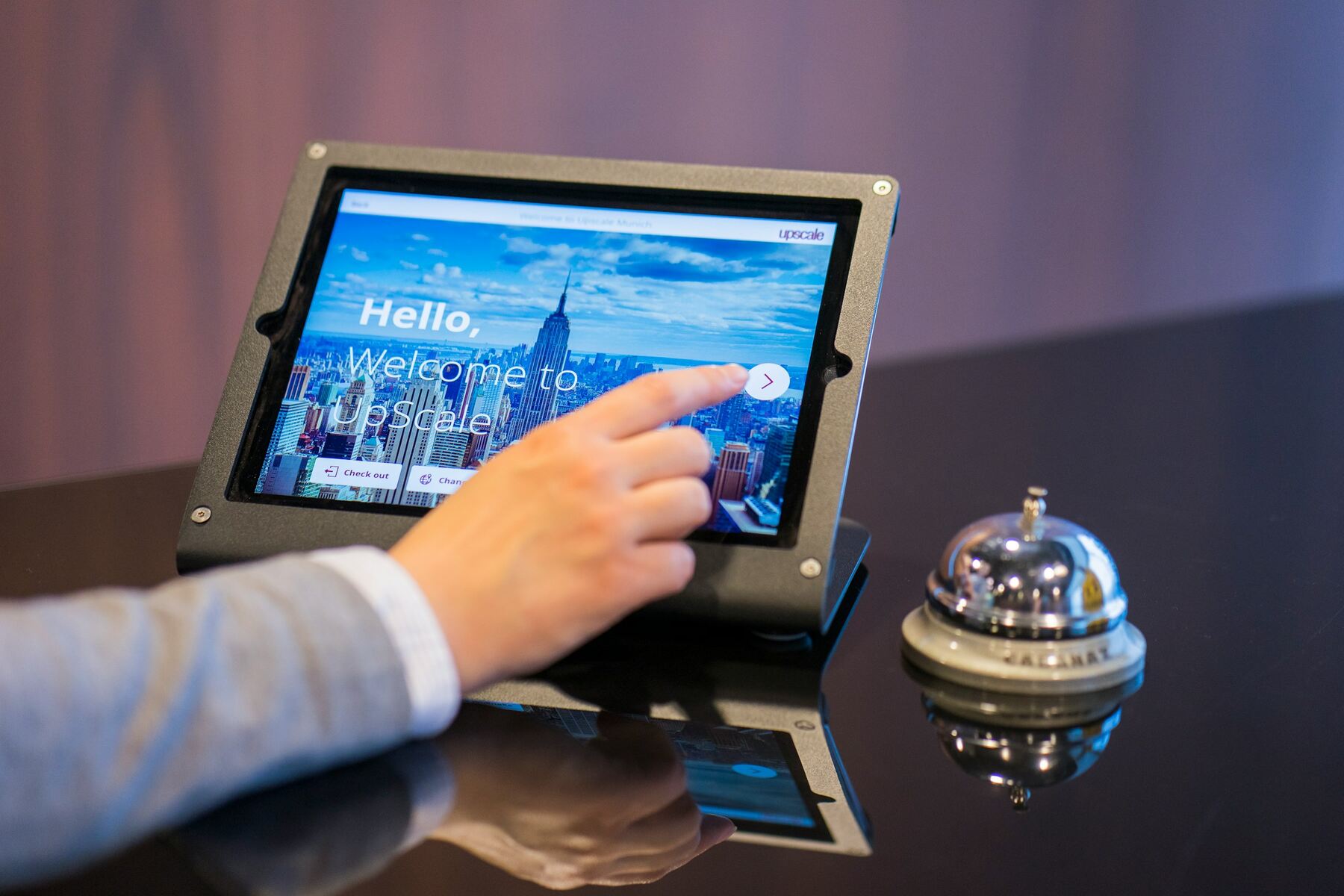Over the years of providing degree guidance, we’ve seen how choosing the wrong hospitality or hotel management program can leave graduates unprepared for the competitive job market post-graduation. In this guide, you’ll learn the key factors to consider in how to evaluate a college’s hospitality and hotel management program.
How to Evaluate a College’s Hospitality and Hotel Management Program
To select the best hospitality or hotel management program, research the program’s accreditation and credentials, specialized curriculum and course offerings, and industry-experienced faculty. You should also scrutinize the quality of facilities and partnerships, career-focused student organizations and support services, the availability of internships and externships, and overall costs and expenses.

A college’s hotel management and hospitality program should possess a blend of academic excellence and real-world experience. Here’s how you can guarantee a robust curriculum and strong industry connections that can set you up for leadership roles in the field.
| Factor | Details |
| Accreditation and credentials | Look for program accreditation from the Accreditation Commission for Programs in Hospitality Administration (ACPHA) |
| Curriculum and specializations | Evaluate coursework and areas of specialization that provide hands-on skills |
| Faculty expertise and industry experience | Know if the professors have work experience in hospitality and connections to bring real-world knowledge to the classroom |
| Facilities and amenities | Check for quality facilities like commercial kitchens, dining rooms, and on-site hotels |
| College organizations and extracurricular activities | Look for clubs and activities related to hospitality |
| Externships and career services | Identify externships and career opportunities |
| Fees and expenses | Consider total costs and financial aid options |
1. Check for Accreditation and Credentials
Accreditation is the hallmark of excellence for hospitality and hotel management programs. Selecting an accredited program ensures the education meets industry standards and fosters trust among future employers.
Recognized Accrediting Bodies
When evaluating hospitality programs, verifying the accrediting body is crucial. The following are respected organizations in the field:
- ACPHA (Accreditation Commission for Programs in Hospitality Administration)
- CHEA-approved regional bodies like the Middle States Commission on Higher Education (MSCHE) and the New England Association of Schools and Colleges (NEASC)
Program Accreditation Status
Verifying this status is a non-negotiable step in choosing a reputable hotel management and hospitality program.
- Visit the program’s official website; they should prominently display their accreditation.
- Check the accreditor’s website to confirm the program’s current status.
2. Review the Curriculum and Specializations
Whenever we help incoming first-year students choose a hospitality or hotel management course, we emphasize the importance of comparing curriculum and specializations.

Core Curriculum Overview
We recommend scrutinizing a program’s core curriculum to ensure it delivers comprehensive knowledge in critical areas of hospitality. The core should typically include:
- Hotel operations: A deep dive into front and back-office operations.
- Customer service: Training in guest relations and customer satisfaction.
- Business management: Foundational business principles applied to hospitality.
Specialization Options
Specialization options let you customize your education according to your interests and career goals. Check if the program offers areas such as:
- Event planning: Focus on logistics and management of various events.
- Food and beverage management: Insights into managing F&B services.
- Tourism management: Education on travel industry dynamics and management practices.
Industry Relevance
We give importance to how well the curriculum aligns with industry skillset expectations. Effective programs should:
- Bridge theory and practice: Ensure practical application of learned concepts through internships.
- Monitor trends: Regularly update the curriculum to reflect the evolving nature of the hospitality industry.
- Engage with professionals: Invite industry leaders to share real-world insights with students.
3. Inquire About Faculty Expertise and Industry Experience
Look closely at the faculty credentials. It’s crucial for instructors to possess academic prowess and significant industry experience.
This combination assures that the course content is theoretically sound and practically relevant. To gauge the depth of expertise, prospective students should consider:
- Academic qualifications and teaching experience
- Professional background in hospitality sectors
- Contributions to industry publications or conferences
- Experience in various hospitality roles enriches teaching
- Direct industry insights provide real-world learning opportunities
- Industry connections can aid in student placements
4. Inspect the Facilities and Amenities
Pay close attention to the quality and variety of facilities and amenities available. These are vital features, as they contribute directly to the practical learning experience of students.
Off-Campus Resources

Look for connections with local hotels and event spaces that provide students with real-world experiences. Here’s what to look for:
- Partnerships with local hotels: Opportunities for internships or hands-on training.
- Event collaboration: Working with local businesses on actual events to learn beyond the classroom.
On-Campus Resources
The on-campus resources of a program often give me insights into the commitment a college has toward hospitality education. Significant on-campus amenities include:
- Dedicated learning facilities: Modern classrooms and computer labs with industry-specific software.
- Practical laboratories: Fully operational mock hotel rooms or on-site restaurants for applied learning.
5. Look for College Organizations and Extracurricular Activities
Among the key elements to consider in evaluating hotel and hospitality programs is the range of college organizations and extracurricular activities. These groups can be pivotal in providing hands-on experience, networking opportunities, and personality traits you need in the hospitality sector.
- Student-run restaurants or hotels: These facilities give students the invaluable experience of working in a real-world environment.
- Hospitality-focused fraternities or sororities: These organizations can facilitate industry connections and foster camaraderie among students.
- Event planning committees: Helping to organize campus events can offer essential organizational and execution experience.
6. Determine Externships and Career Services
According to the Bureau of Labor Statistics, around 15 million people work in the hospitality industry in the United States as of December 2021. Checking the practical experiences and career support from a college program can give you a head start in this highly competitive industry.
- Quality of externship programs: We suggest looking for programs that align with your career ambitions. See if the college has partnerships with reputable hotels and hospitality businesses. Lastly, get feedback from former students about their experiences.
- Career placement success rate: When evaluating the efficacy of a college’s program post-graduation, we focus on the program’s historical placement rates. Know if there are strong network connections within the industry. It also helps if there are dedicated career services to assist you with job searches and interview preparation.
7. Compare Costs and Expenses
For general hospitality management programs, the median tuition cost at in-state public colleges is around $6,700, whereas fees may reach up to $30,700 at out-of-state private schools.

Tuition is the primary expense, although you should also account for costs in these aspects:
- Books
- Supplies
- Uniform
- Lab fees
- Housing
- Travel or transportation
Related Questions
How Do Hospitality and Hotel Management Programs Differ Between Colleges?
Hotel management and hospitality programs differ in curriculum focus, faculty experience, and hands-on training opportunities. Some colleges may emphasize practical skills in operational areas of hospitality. Meanwhile, others lean towards a more theoretical approach that includes business management components.
What Are the Top Factors That Define a Quality Hospitality and Hotel Management College?
A quality program typically stands out with accredited courses, strong industry connections, and a solid track record of graduate employment. Internship opportunities often distinguish a college’s commitment to immersive learning experiences.
Can You Pursue a Hospitality Management Degree Online and Receive the Same Quality Education as In-Person Programs?
You can receive a comparable education online, with many programs offering curricula that mirror their on-campus counterparts. Online programs provide flexibility while maintaining rigorous standards and providing interaction with industry-experienced faculty.
Conclusion
Understanding how to evaluate these programs properly can help you make informed decisions about your education. A robust program can set the stage for a successful and fulfilling career in the hospitality sector. With these tips, you’ll gain the knowledge, skills, and connections to launch a rewarding career in this exciting industry.



